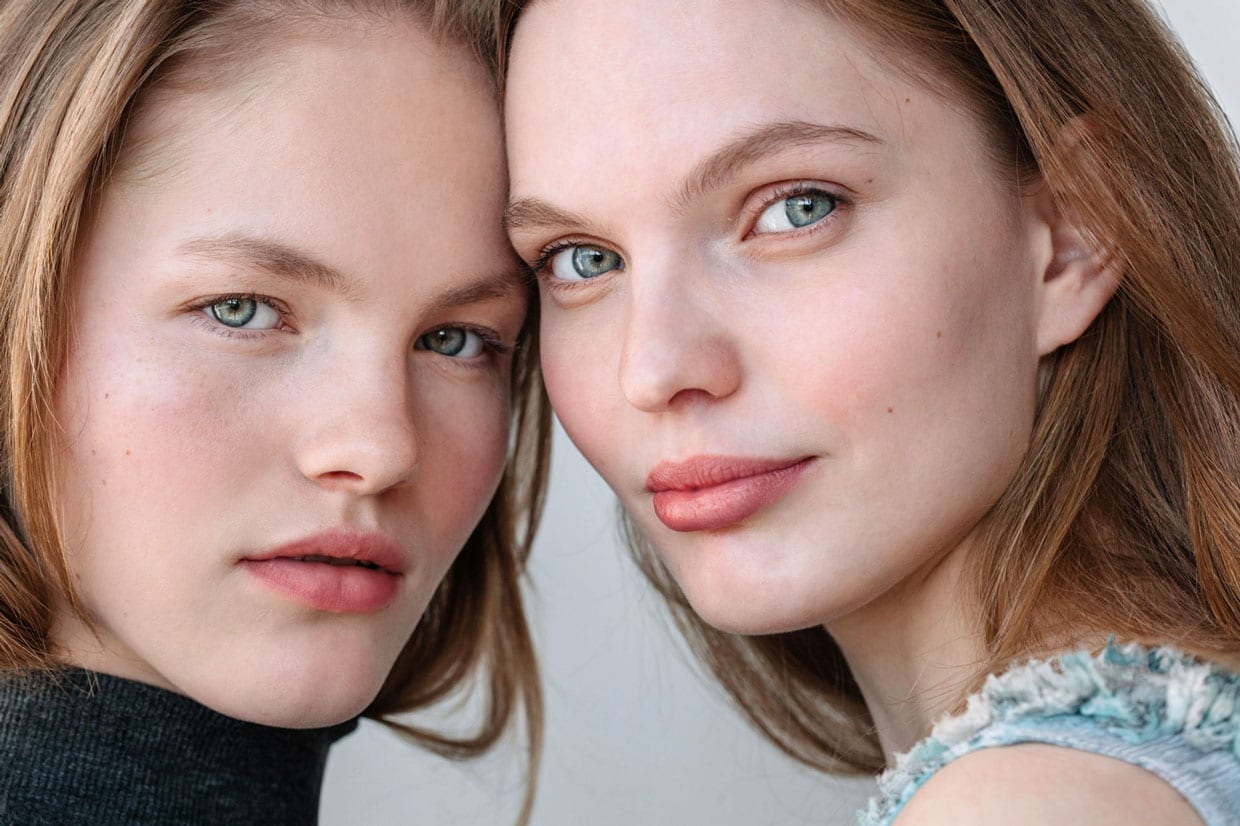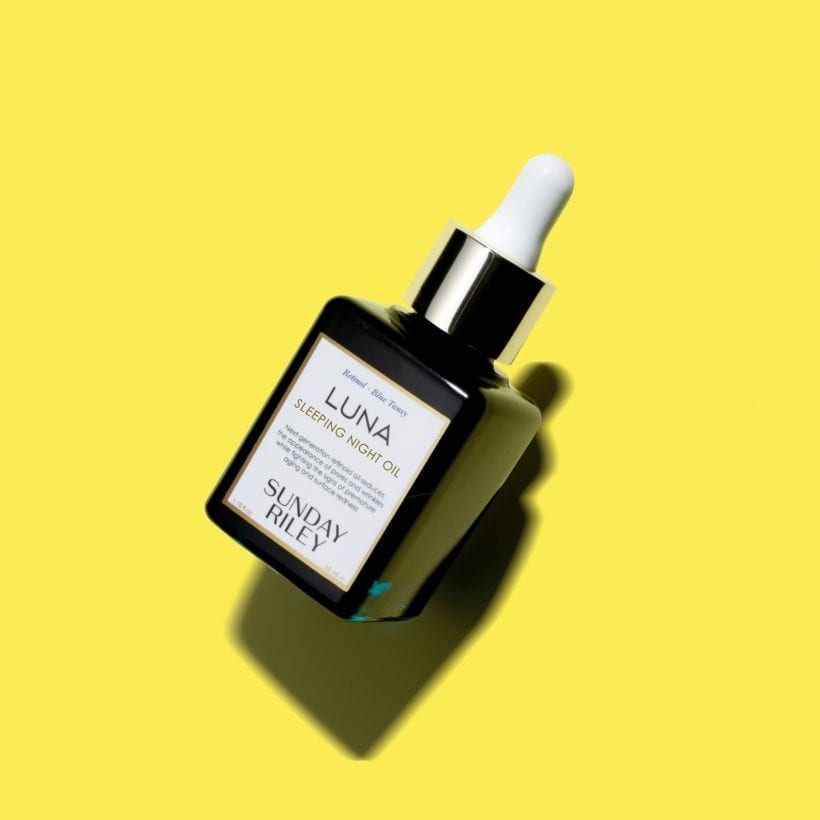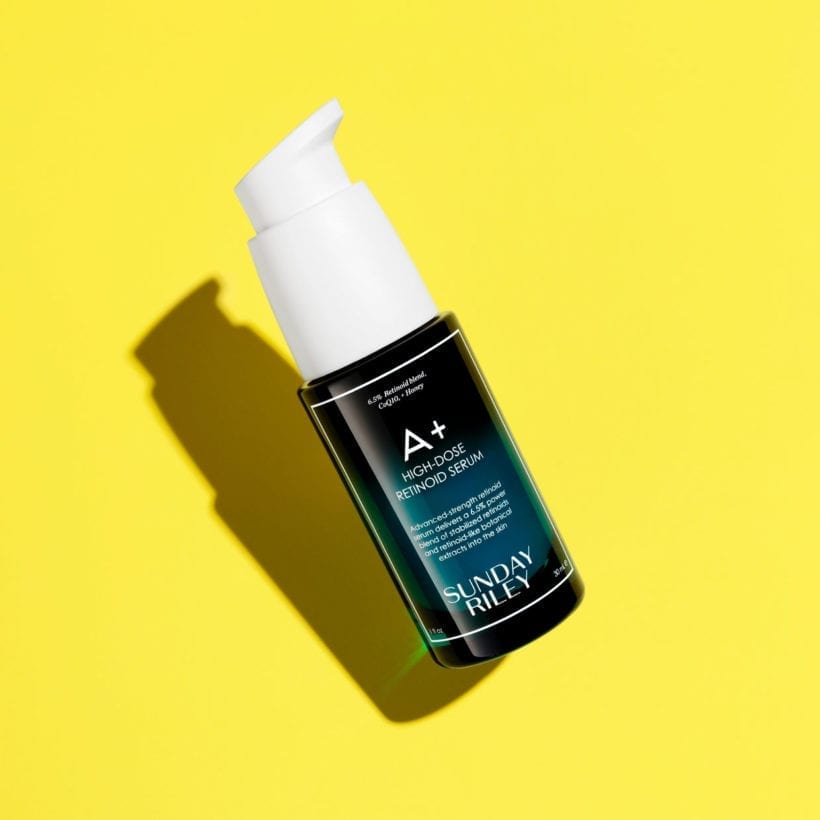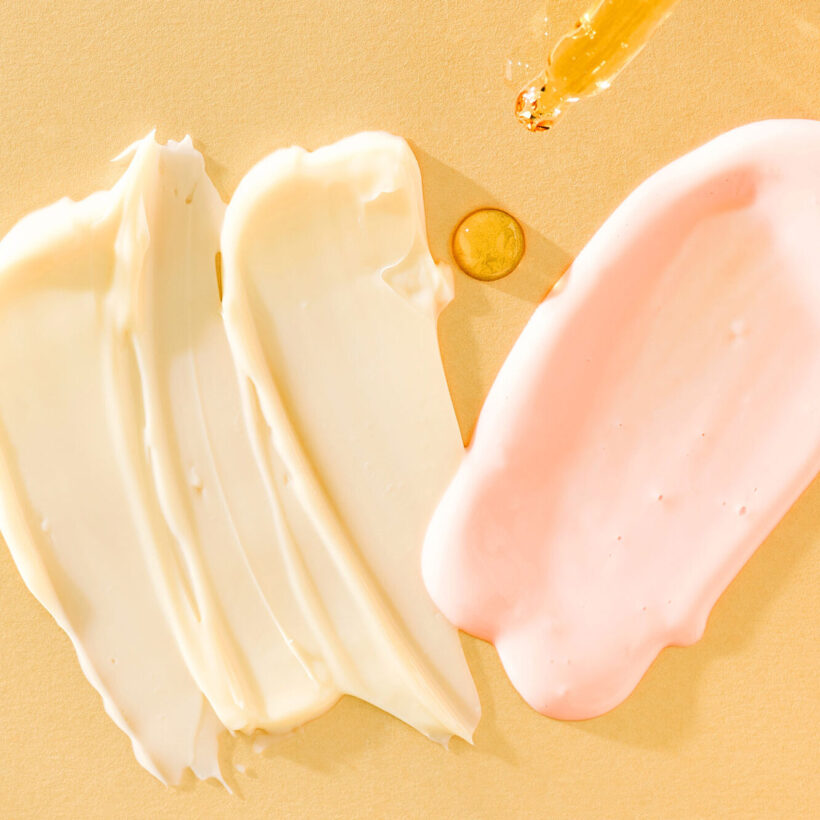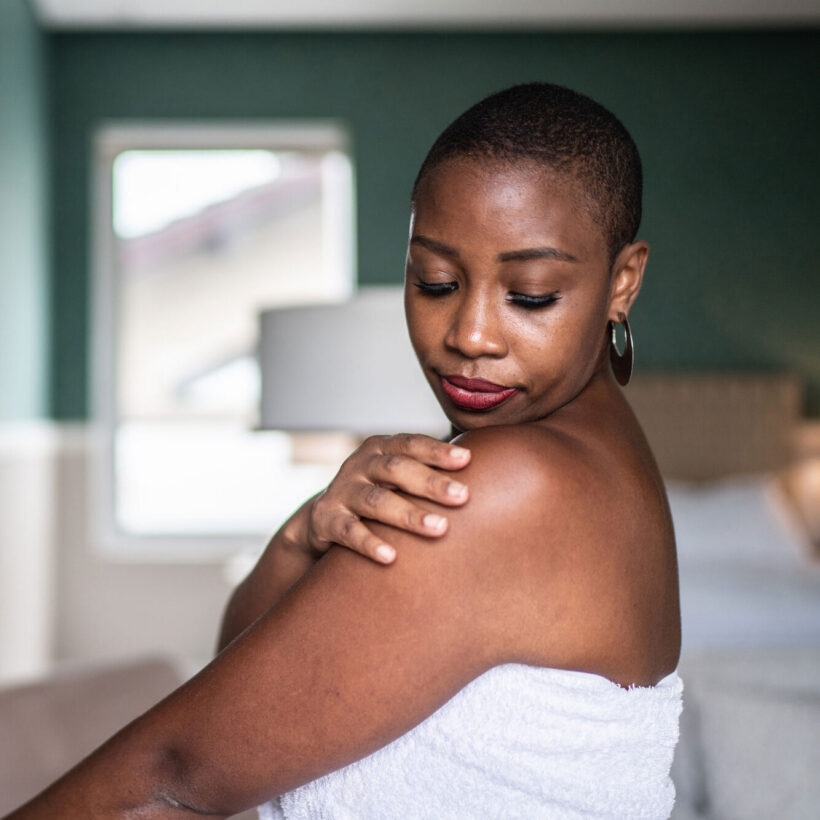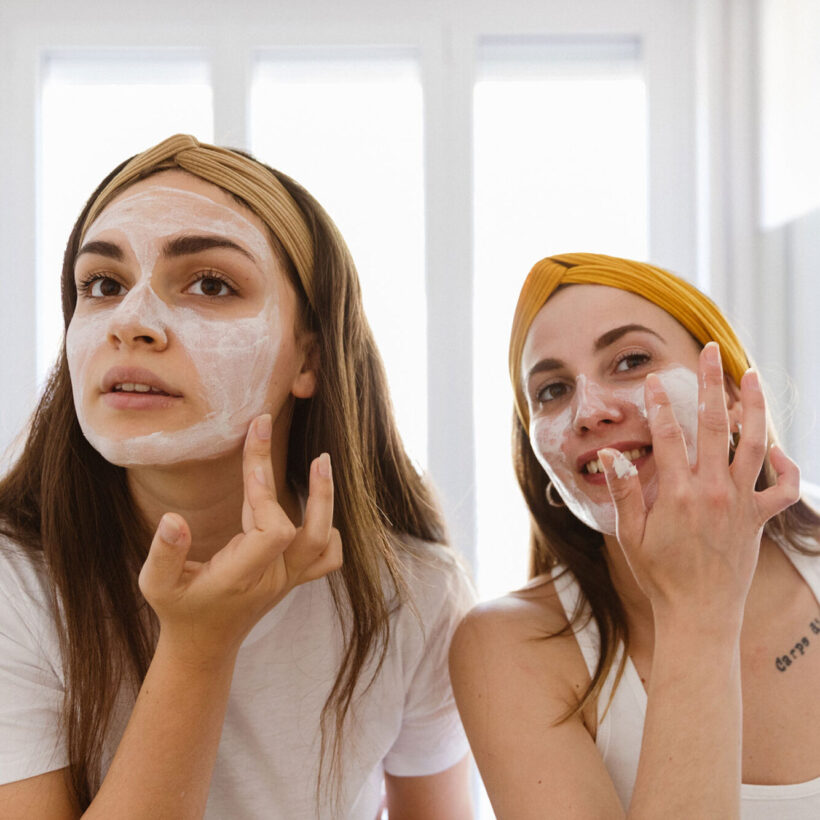Welcome to Retinol 101, an overview of the ingredient you keep hearing about but might not know exactly what it does. Since retinoids (forms of vitamin A that come in endless concentrations, shapes, and sizes) carry a higher potency than other skincare products or ingredients, you should talk with a dermatologist or sign up for our free virtual consultation before incorporating it into your routine. But before you even make an appointment, our guide can give you the 101 you need to understand what retinol is and why it matters.
Meet the Experts
Sunday Riley , CEO, founder and product formulator
Tsippora Shainhouse , M.D., F.A.A.D.
Papri Sarkar , M.D., board-certified dermatologist
What Is Retinol?
“Retinol is an over-the-counter version of a retinoid, and it encourages skin-cell maturation and boosts cell turnaround, removing superficial dead skin and flattening the top layers of our cells,” explains Sunday Riley. “I’m a big believer as a product formulator that you need three ingredients in your life no matter what your skin type is. That’s going to be an alpha hydroxy acid, a retinol, and a vitamin C product. You really need all three, from my perspective, to have total skin transformation. Retinoids really work by helping to transform your skin from the bottom up, and alpha hydroxy acids really work from the top down by cleaning the kind of dirty slate that’s on the surface of your skin. So together, they’re often just a power couple because they really give you total and complete change. Vitamin C is such a strong antioxidant and really great for the overall look and appearance of your skin.”
What Does Retinol Do?
Simply, when used effectively, retinol will leave your face looking smoother, with fewer bumps or red patches, giving a youthful, healthy, and even-toned complexion. “It also helps to promote new collagen production, which can help reduce the appearance of fine lines and thicken skin, to help it appear more firm [sic] over time,” she adds.
“Retinoids are one of my absolute favorite ingredients for anti-aging, and they work wonders on the appearance of pore size, surface redness, lines, and wrinkles. Retinoids have been extensively studied and praised for decades, but many people are wary of the potential irritation, redness, and flakiness associated with them. I wanted to create a retinol that is just good for you, bridging the gap between the benefits of retinol and the common issues found in the market.”
Benefits of Retinol:
- Fades sun spots, dark circles, and hyperpigmentation.
- Brightens tired or dull skin.
- Fights blackheads.
- Prevents pores from getting clogged.
- Reduces fine lines and wrinkles.
- Improves overall skin texture.
Learn more about which type of retinol is best for your skin.
Retinol vs Retinoid
There is a difference between retinol and retinoids, though the two words are often used interchangeably. Essentially, retinol is a type of retinoid. Both products come from vitamin A. Retinols and retinoids convert to retinoic acid, and that’s what does the heavy lifting on your skin.
They differ in their potency and how they work on the skin.
- Retinol: Retinol is a type of retinoid available over-the-counter in many skincare products. It is less potent than prescription retinoids and works gradually to improve skin texture, reduce fine lines, and treat mild acne. The skin must convert retinol into retinoic acid before it can be effective, which is a slower process. This makes retinol gentler and suitable for most skin types, including sensitive skin.
- Retinoids: Retinoids are a broader category that includes both over-the-counter options like retinol and stronger prescription-strength treatments such as tretinoin (Retin-A), adapalene (Differin), and tazarotene (Tazorac). Prescription retinoids are already in or quickly convert to retinoic acid, the active form that directly affects skin cells. This makes them more potent and effective for treating severe acne, deep wrinkles, and significant skin texture issues. However, they can also cause more irritation, redness, and peeling, especially when first introduced to the skin.
How did you formulate your retinol products? Sunday Riley explains:
- TRANS-RETINOL in Luna Sleeping Night Oil belongs to a class of chemical compounds termed retinoids, the potent ester of all-trans retinoic acid. Helps fight the appearance of wrinkles and fine lines, promotes skin elasticity, and stimulates exfoliation for clearer, smoother skin. Not appropriate for use during pregnancy. “Luna is a retinoid oil, making it a perfect entry into the retinoid category for those who might be hesitant. It’s incredibly gentle, offering all the benefits of retinoids, while the essential oils help soothe and calm the skin during application. Azulene is a powerful anti-inflammatory and soothing compound that gives these ingredients blue color. As you rub it in, it goes completely clear and sheer, and it smells delightful, thanks to blue tansy and German chamomile oils.”
- RETINOID ESTER BLEND 5% + LIPOSOME-ENCAPSULATED RETINOL BLEND 1% + 0.5% BLUE-GREEN ALGAE in A+ High-Dose Retinoid Serum helps reduce the appearance of wrinkles and lines and encourages signs of clearer skin. A+ is significantly stronger than Luna. They both use trans-retinoic acid ester, but A+ has significantly more of it in the product than Luna. “So Luna is very effective, but it’s also a lot gentler. If you’re looking for a very serious retinoid product, go to A +. If you’re a little bit intimidated, start with Luna or keep using Luna and your routine as you incorporate A+,” says Sunday. “When putting together A+, I knew I wanted to create something really strong and effective. So, I created a high-dose retinoid serum balanced with botanicals. It transforms your skin with three retinoid-like ingredients. By creating a balanced formula, you get all the benefits of having a high-dose transformative retinol serum without all the drawbacks and side effects. Anyone interested in retinoids will love these products, because they’re going to see results right away, no matter what their concern is, and then they can customize how they use the product to get the results that they want to see,” adds Riley.
- RETINOIDS (5% RETINOIDS ESTER, 1% LIPOSOME ENCAPSULATED RETINOL) in 5 Stars Retinoid+Niacinamide Eye Serum: Strengthens and supports skin’s natural collagen to diminish the appearance of lines and wrinkles. “Retinol, a powerful skincare ingredient, is not recommended for use directly around the delicate eye area, where the skin is thinner and more sensitive. However, when properly formulated for this sensitive region, retinol can be immensely beneficial. For 5 Stars, it was important for me to create a retinoid eye serum for our line-up to complete the evening routine. With the increase in mask-wearing due to COVID-19, I felt there was a larger focus on the eye area, so when we launched, it seemed like the right time to innovate in the eye category and extend our retinol range”, explains Sunday.
In summary, while both retinol and retinoids can improve skin health and appearance, retinoids are stronger and often used for more severe skin concerns, whereas retinol is milder and suitable for gradual, long-term use.
The difference? Retinol is an over-the-counter product that is gentler on the skin but still very effective, and retinoids contain higher concentrations of retinoic acid.
We Thought Retinol Was For Acne?
Studies confirm that retinoids are helpful for clearing acne because they can help regulate oil production and dry existing acne, but retinol can also be used for anti-aging. Board-certified dermatologist Papri Sarkar, M.D. says it’s a misconception many people have about the use of retinoids. “People remember retinoids from their teenage days when their doctor gave them Retin-A and can’t move past that idea. The truth is that you can use it for some serious anti-aging effects, including building collagen and treating fine lines and wrinkles,” she adds.
Luna Sleeping Night Oil is clinically proven to improve skin radiance, fine lines, and smoothness in 4 weeks.
After an independent consumer testing panel used Luna Sleeping Night Oil for four weeks:
- 96% of women felt their skin looked brighter and more radiant
- 96% of women felt their skin looked healthier and revitalized
- 92% of women felt their skin tone looked more even, calmer, smoother
In an independent study, A+ Serum showed improvement in the appearance of skin tone evenness, and calmness after one week.
In an independent blinded study of 102 people, after four weeks:
- 90% of people saw boosted radiance and agreed the product was gentler than other facial retinoid serums used in the past
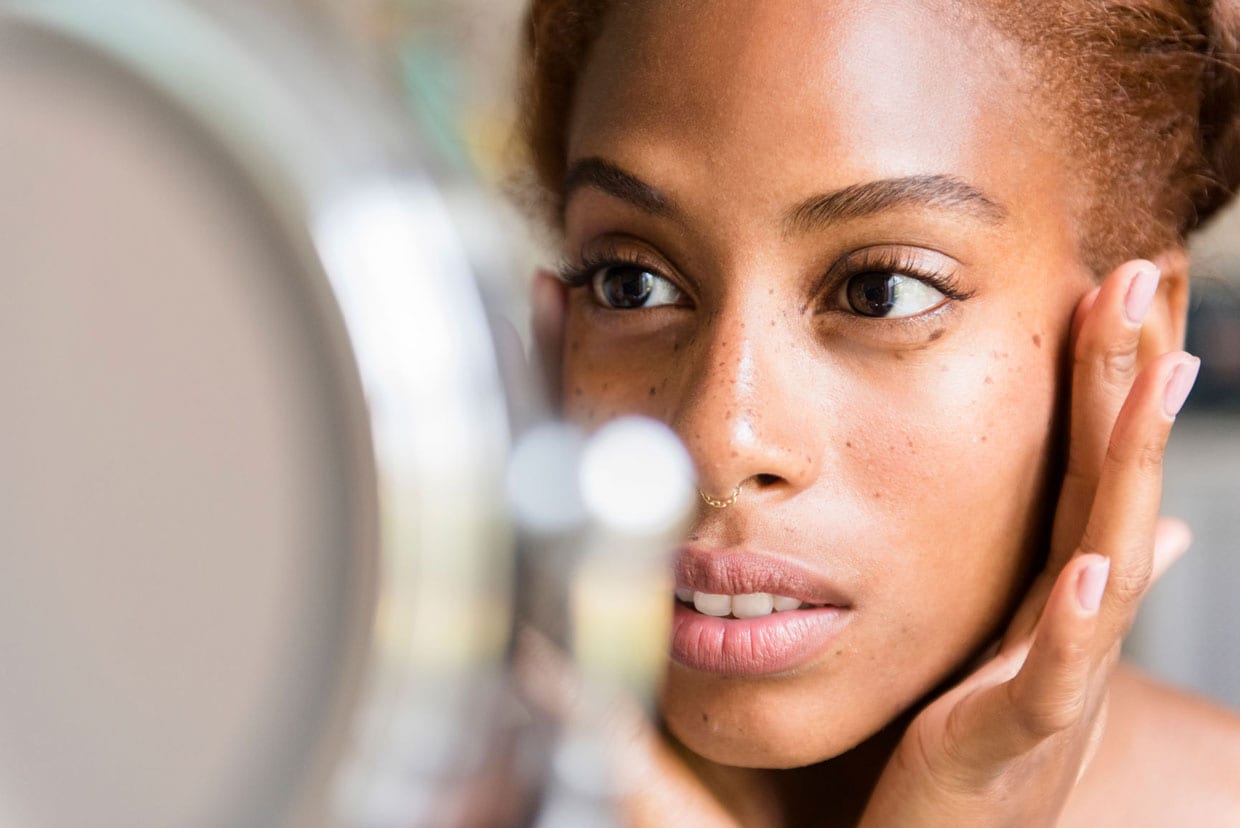
Won’t A Retinol Dry Me Out?
If you’re wondering if retinol will dry out your skin, the answer is sometimes — but probably not, according to Sarkar. Because retinols are the over-the-counter version of a retinoid (which usually requires a prescription), they are not as intense on the skin. Though they could make you more sensitive to the sun during the summer — you should always wear SPF when using retinol — or cause some dry patches in the winter; it is mostly the concentration, time of day, and how often you use retinol that matters.
In general, Shainhouse says retinol should be used as part of your pre-bedtime regimen and not during the day when you are more sun-sensitive. Why? Retinol works to slightly exfoliate your skin, revealing layers underneath at rapid speed. “Skin cells are programmed to develop and make their way to the skin surface over two weeks, then shed over two weeks. This process can slow down as skin ages, and cells are often retained in the top layers, leaving skin dull, flaky, and clogged. The application of topical retinoids ensures that skin cells mature and shed as they are supposed to. It can speed the process of skin shedding,” says Riley.
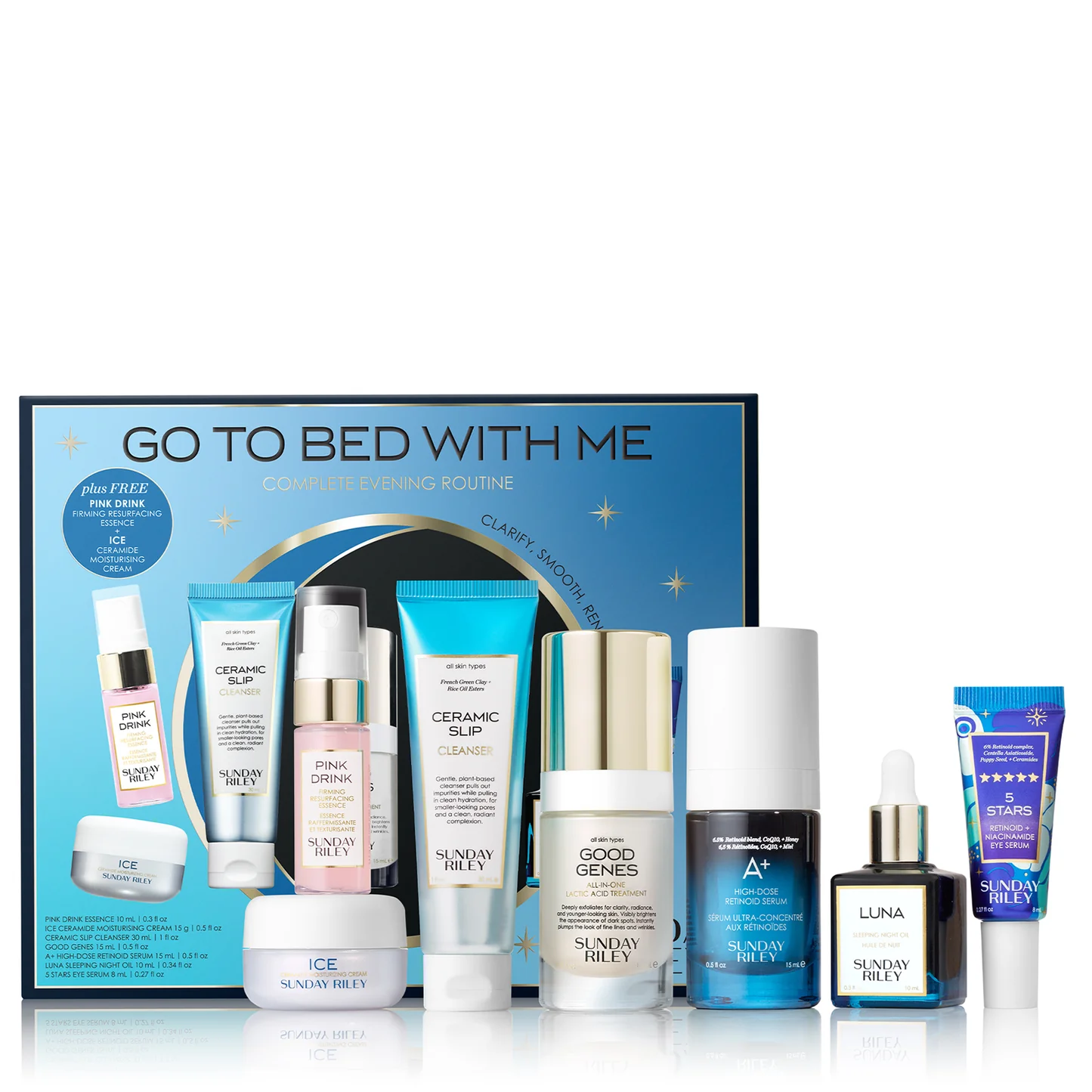
HOW TO USE
- After patting your skin dry, mist PINK DRINK onto your face, massage into your skin and let dry.
- Follow with 1-2 pumps of GOOD GENES to the face and neck.
- Next, apply 1-2 pumps of A+ SERUM to your face and neck, followed by 3-4 drops of LUNA (or mix them together and apply as a skin cocktail).
- Using your ring and middle fingers, lightly tap a pearl-sized amount of 5 STARS onto the eye area and massage outwards around the outer crow’s feet, under the eye, and between brow bone and eyebrow.
- Before bed, massage in ICE onto the face, neck, and décolleté to lock in moisture.
When Should You Start Using Retinol?
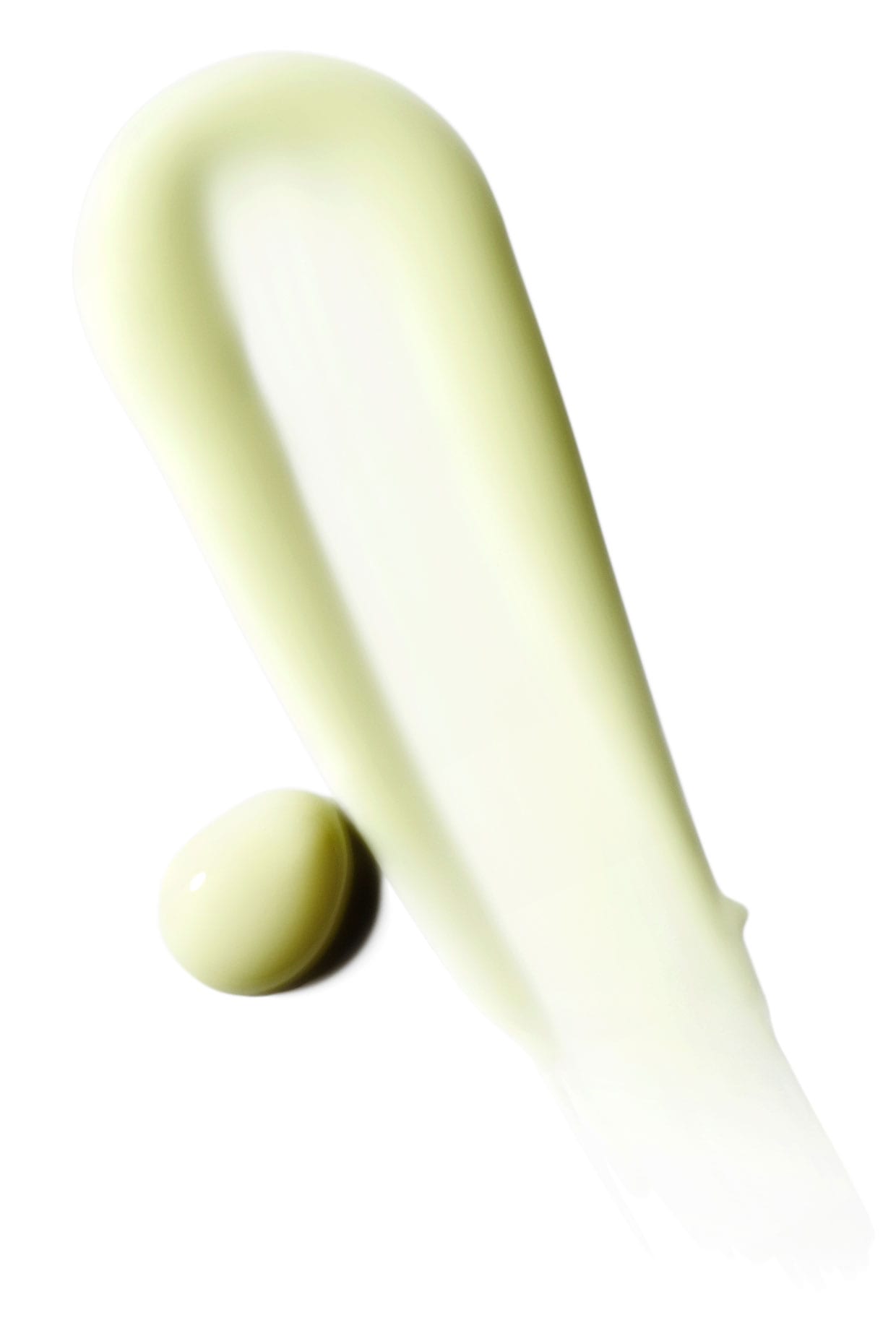
Though we are all guilty of letting our skin health slide from time-to-time, once you have reached your mid to late 20s, dermatologists suggest incorporating a retinol product into your regimen for best, long-lasting results. If you never thought much about your pores and have gotten by with washing your face (sometimes) and applying moisturizer (when you remember) — consider this your wakeup call. Retinols are used a little differently than your other favorite products, and a general rule to keep in mind when starting with retinol is that less is more (which means they’ll last a long time).
How To Use Retinol And How Often
“For best results, I recommend using A+ Retinoid Serum along with a hydrating oil like C.E.O. Glow, Juno, or Luna—whichever you prefer. Since A+ is a strong retinoid serum, it’s important to ease your way into it. Start by applying it two nights on, two nights off, and gradually increase to every other night. If you have sensitive skin, apply the oil first and then A+ on top, which will slow down the rate of infusion and provide a gentler experience. If you’re accustomed to retinoids, you can apply A+ directly and follow with an oil afterward. In the morning, use Good Genes, an alpha hydroxy acid, to help eliminate flakiness and support skin renewal. The hydrating oil will deeply nourish your skin, leaving it glowing and radiant without downtime. Luna, our famous blue oil, is particularly gentle and hydrating, thanks to the soothing properties of German chamomile and blue tansy,” adds Sunday.
What To Pair With
It is also smart practice to apply a moisturizer like ICE Ceramide Moisturizing cream or hydrating oil right before or after you use retinol to avoid irritation and ensure your pores are still getting the hydration they need.
What To Avoid
When using retinol products, it’s important to avoid certain practices and ingredients to ensure your skin remains healthy and to maximize the benefits of retinol. Here’s what to avoid:
- Sun Exposure: Retinol can make your skin more sensitive to UV rays, increasing the risk of sunburn. Always apply sunscreen during the day and consider using retinol products at night.
- Fragranced Products: Fragrances can irritate the skin, especially when using retinol. Opt for fragrance-free products to minimize the risk of irritation.
- Alcohol-Based Products: Products with high alcohol content can dry out the skin and exacerbate the drying effects of retinol.
- Waxing: Avoid waxing the areas where you apply retinol, as it can make the skin more prone to irritation and damage.
- Skipping Moisturizer: Retinol can be drying, so it’s essential to keep your skin well-hydrated using a good moisturizer.
- Retinol Overuse: More isn’t always better. Overuse can lead to irritation, redness, and peeling. Follow the recommended usage instructions and gradually build up your tolerance.
“By avoiding these practices and ingredients, you can enjoy the benefits of retinol while minimizing potential side effects,” adds Riley.
You can still use acids (like AHAs and BHAs) with retinol, but avoid using them at the same time; for example, you could use acids one night and retinol the next, or acids in the morning and retinol at night.
A.M.:
Cleanse skin and apply 1-2 pumps of Good Genes Lactic Acid Treatment. Follow with 1-2 pumps of C.E.O. 15% Vitamin C Brightening Serum, massaging well into the skin. We recommend completing your morning routine with C.E.O. Glow Vitamin C + Turmeric Face Oil, C.E.O. Afterglow Brightening Vitamin C Gel Cream, Auto Correct Brightening + Depuffing Eye Cream.
P.M.:
Cleanse skin and apply 1-2 pumps of A+ High Dose Retinoid Serum to dry skin. Allow to sink in for a few minutes before following with C.E.O. 15% Vitamin C Brightening Serum (yes, twice a day!). We recommend completing your evening routine with Luna Sleeping Oil,and Ice Ceramide Moisturizing Cream or C.E.O. Vitamin C Rich Hydration Cream.
Use During Pregnancy – Retinol can pose significant risks to the developing fetus and nursing infants. Under no circumstances should retinol be used by pregnant or breastfeeding women. Always consult with a healthcare provider for safe skincare alternatives.
How Long Until You See Results?
Though Shainhouse says that with prescription retinoids, you can see a big difference in a few weeks; retinols take a bit more time to work their magic. When used regularly, you can expect results in one to two months. For example, Luna Sleeping Night Oil is clinically proven to improve skin radiance, fine lines, and smoothness in 4 weeks.
We only recommend products we have independently researched, tested, and loved. If you purchase a product found through our links, Sunday Edit may earn an affiliate commission.
